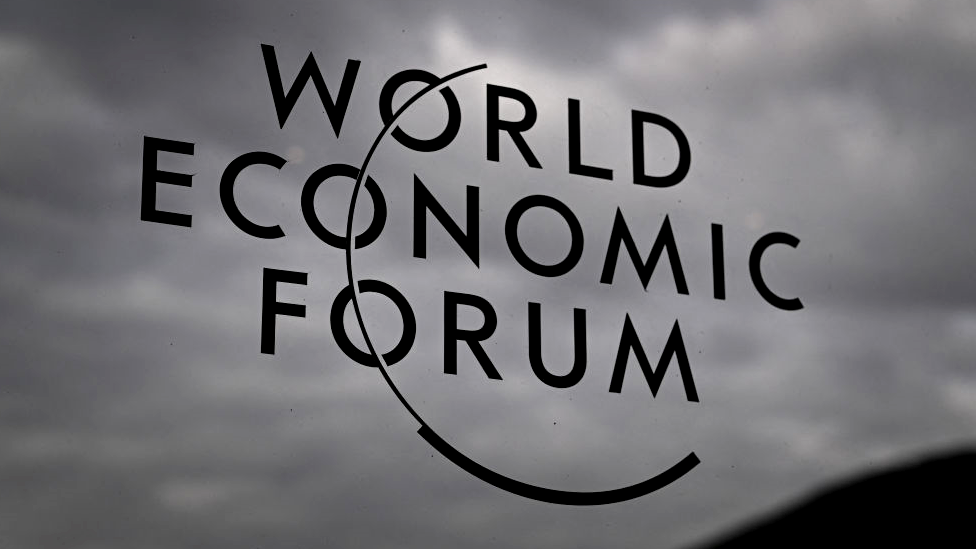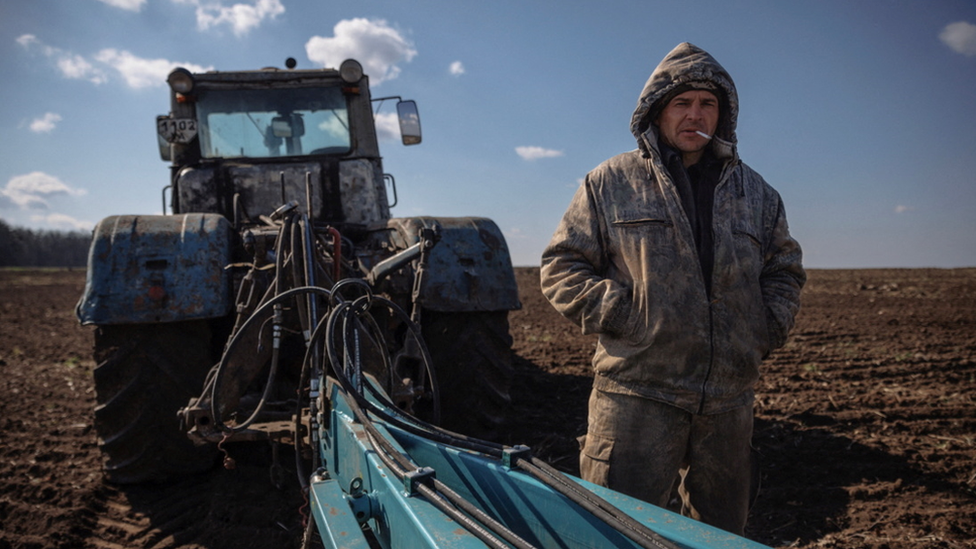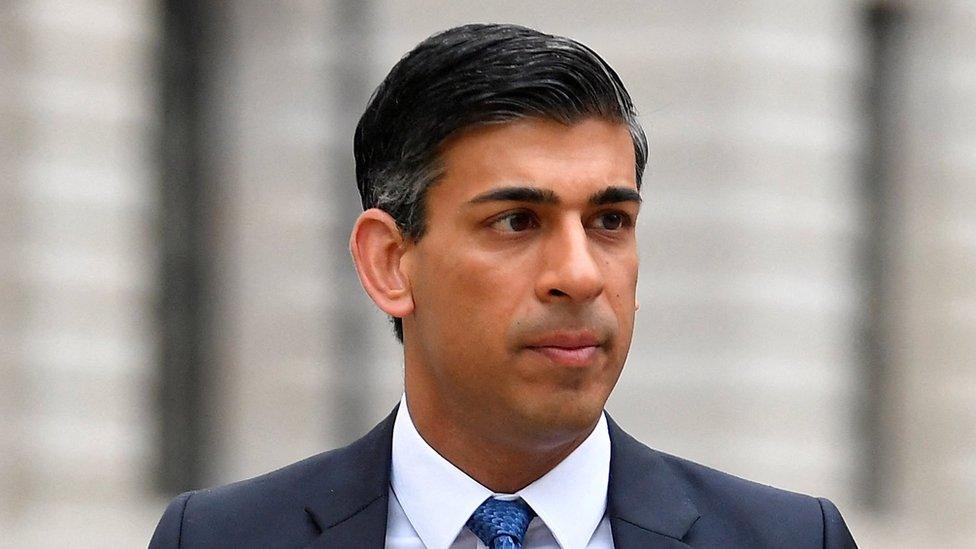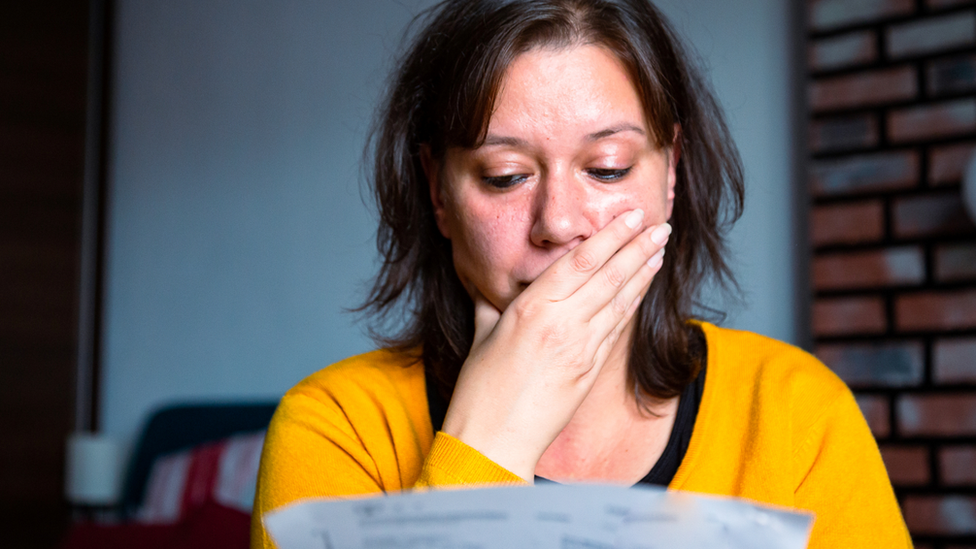Recession fears cast shadow over Davos gathering
- Published

The fear of recession is stalking the World Economic Forum in Davos.
It has been two years since the world's business and political elite have been allowed to attend the summit in person, thanks to Covid.
But the reunion has been marred with warnings of "dire human consequences" of global slowdowns as the war in Ukraine exacerbates rising inflation.
Central banks have been raising interest rates to try and dampen the rising cost of living but many wonder what the knock-on effect of this will be.
"There's the big question, are the central banks going to have to raise interest rates so much it actually snuffs out the growth of the economy? Or are they going to be able to finesse this and generate a soft landing? Many of the conversations here at Davos have been what percentage likelihood do you attach to a recession? Let's say 5050," the CEO of Standard Chartered bank Bill Winters told me.
Concern is most acute about Europe, including the UK, as a result of our proximity to the Russian energy price shock.
Russia's attack on Ukraine has also led to a severe disruption of key food supplies of wheat and sunflower oil.
The supply shock is expected to last into next year.
While a recession is also on the cards in the US, that is perceived to be due to a very different kettle of fish.
In the US, demand is booming. There is a wage-price spiral and it is the central bank raising interest rates that is responsible for a slowdown.
In Europe, however, markets are not functioning properly.
The normal market response to high energy or food prices is that it provides incentives for more production. This move, over a number of months, would help to bring down prices.
For different but related reasons, those mechanisms are not firing right now.
In terms of food prices, it isn't just that the invasion Ukraine, one of the breadbaskets of the world, is having a side effect.
The private concern of many here in Davos has been that this is part of Russia's conscious strategy to test the stamina of the international community - that "famine is being weaponised" as one banker told me.

Russia's assault on Ukraine has disrupted supplies of key good stuffs such as wheat
Indeed, the head of the United Nation's World Food Programme, David Beasley, said Russia's naval blockade of the key grain export port of Odessa "is a declaration of war on global food security".
Sameh Shoukry, the foreign minister of Egypt, the world's biggest wheat importer, told me it had the resilience and stocks to see things through for now but he was keen to see a diplomatic solution to the Ukraine conflict.
Separately, financiers say that it is no surprise that after years of being told not to invest in fossil fuels, the recent rise in prices has not spurred the extra production that would normally bring down the cost of energy.
That link has been broken.
The relief is that at least the banking system seems in relatively strong health and should not accelerate any downturn.
But in the key two areas driving the global cost of living crisis, the normal mechanisms are being interrupted.
It is what makes predictions of when things settle down, very difficult indeed.
- Published17 May 2022

- Published16 May 2022
- Published16 May 2022

- Published16 May 2022

